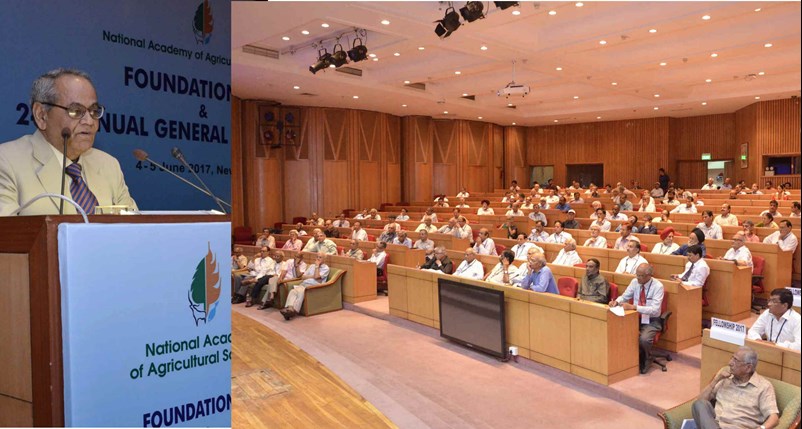
National Academy of Agricultural Science (NAAS), a body of leading agricultural scientists,has urged the government to give final nod to commercial cultivation of genetically modified (GM) Dhara Mustard Hybrid-11 (DMH-11) and pave way for developing better hybrids in the future.
According to the resolution adopted by NAAS,the Centre and state government should immediately endorse the recommendations of the Genetic Engineering Appraisal Committee (GEAC) so that the coming growing season can be fully utilized for the multiplication of parental lines and production of hybrid seed.
Last month, the Genetic Engineering Appraisal Committee (GEAC), the regulator under the Environment Ministry had approved the commercial release of the Mustard DMH-11 developed by a team of scientists at Delhi University led by Deepak Pental.
According to them Dhara Mustard Hybrid (DMH) 11 in the field trials had given a yield of 20% to 30% more than existing varieties. They stated that this would allow farmers to access the variety at low cost and would ensure that breeders develop better hybrid in the future.“As we developed the GM mustard variety through funding from National Dairy Development Board and Department of Biotechnology, it could be used by any public or private agencies for multiplication of seeds which would be a cheaper proposition, Deepak Pental said.
This was the third GM crop after BT cotton and Bt brinjal to be approved by the regulator. While Bt cotton has been cultivated in the country since 2002, Bt brinjal, the first GM food crop okayed by GEAC, never hit the fields as an indefinite moratorium was imposed on its commercial release in early 2010 by then environment minister Jairam Ramesh.
Although GEAC has approved field trials of several GM crops, there has not been much headway because of lack of No-Objection Certification by states. Meanwhile, Supreme Court is also hearing a petition on commercial release of GM crops.
In September last year, a technical sub-committee, which was formed in early 2016 by GEAC to re-evaluate the bio safety data of DMH-11 had said that the GM mustard variety ‘doesn’t raise any public health or safety concerns for human beings or animals with respect to overall nutritional characteristics’.
According to industry body Association of Biotech Led Enterprises-Agriculture Group, the GM mustard variety has the potential to increase the yield by more than 25%, and thereby reduce the country’s edible oil import bill.
The country’s rapeseed-mustard seed production was reported at 7.9 million tonnes in the 2016-17 crop years (July-June).










